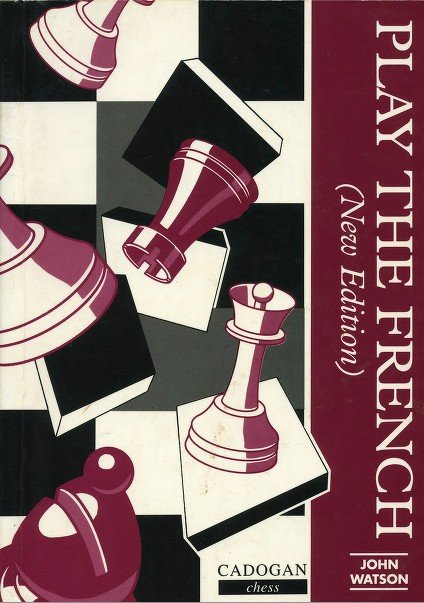Play the French, Watson John - download

With the recent explosion in chess theory, a complete volume covering all variations of the French Defence would require some 1500 pages at least. As similar situations exist for most major openings, chess authors are turning to highly specialized book on sub-variations, or to books on the general ideas of an opening (of the 'How to Play' variety). The former books are admirable, but tend to drive the cost of knowing a whole opening beyond the average player's reach. Also, there will inevitably be some variations for which no such specialty book exists. The latter type of book, dealing with general ideas, is often merely a rehash of some well-known games which can have little or nothing to do with gaining a genuine understanding of an opening. At best, such examples are too particular to provide the reader with something he himself can apply in a game; certainly there is not much in the way of feedback, so that, for example, a player can compare what he did at the club or tournament with his source book.
The repertoire book offers a third possibility, ideally combining in-depth analysis with a recommendation for whatever line the reader might face. Unfortunately, repertoire books have also had their problems. In a few cases authors have presented a slew of highly tactical, sometimes unsound, lines, with the intention of impressing the customer rather than improving his chess. A different kind of problem stems from the fact that a repertoire book typically offers just one line versus each system. If that line is refuted or found wanting, the book has nothing to offer in its place.
I have tried to put together a flexible sort of repertoire, one in which the reader is given two or more systems to play against each main line, with numerous alternatives in the notes. For me, the French Defence is the ideal opening to recommend in this regard. I have not only played hundreds of games with over the course of 17 years, but have also experimented with a number of options at key junctures. I believe, furthermore, in the essential validity of the French, such that Black is generally not forced to walk a particular tightrope versus any given variation.
Apart from a general limitation to specific defensive systems, I have tried to treat this material with all possible depth. Sometimes the analysis may seem dense, but there are always options if the reader dislikes forcing lines. Also, I have included my own games rather extensively. This reflects not just my healthy ego, but the lack of examples for certain parts of the repertoire as well.
The French has a proven reputation for adaptability and soundness attested to by those who have championed it, including Botvinnik, Bronstein, Petrosian, Ivkov and Korchnoi. If anything, its following has increased in recent years, with Andersson, Va-ganian, Gulko, Hubner, Seirawan and Farago among the many using 1...e6. Special tribute, however, should be offered to the two premier French Defence players of all time: Aaron Nimzowitsch and Wolfgang Uhlmann. It was Nimzowitsch who discovered how to play the defence in an original and profound manner. His games established the French as an aggressive, counterattacking defence and have contributed much to its enduring appeal. Uhlmann has played 1 ... e6 exclusively for 30 years, time and again providing key new moves and ideas to revive lines which had appeared to be refuted. His uniquely dominant role in French theory has no parallel in all of modern praxis.
Writing this book was an enjoyable challenge. I hope that it will help you to play and understand one of the great chess openings.
John Watson
Author: Watson John
Title: "Play the French"
Released: 1996
Format: djvu
Quality: good
Number of pages: 226
Size: 3 Mb
Comment 0